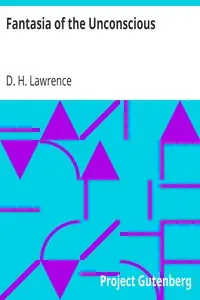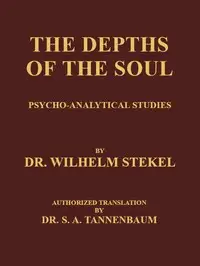"The Complex Vision" by John Cowper Powys is a thought-provoking exploration of human consciousness, suggesting that our understanding of reality relies on a "complex vision" made up of things like feelings, thinking, awareness of ourselves, and our drive to do things. This book examines the soul, the relationship between love and hate, and the powerful forces that shape how we experience and understand life. It starts by introducing the idea that our minds are powerful tools that both create and discover reality and that focusing your personality can lead to an "eternal vision," connecting you to a deeper understanding of yourself and the universe. By contrasting love and hate, the book highlights how these emotions and the soul's unique view influence how we see life, setting the stage for a philosophical study of existence and perception.

The Complex Vision
By John Cowper Powys
Discover how the push and pull of love and hate shapes our view of reality, guiding us toward a deeper understanding of ourselves and the universe.
Summary
About the AuthorJohn Cowper Powys was an English novelist, philosopher, lecturer, critic and poet born in Shirley, Derbyshire, where his father was vicar of the parish church in 1871–1879. Powys appeared with a volume of verse in 1896 and a first novel in 1915, but gained success only with his novel Wolf Solent in 1929. He has been seen as a successor to Thomas Hardy, and Wolf Solent, A Glastonbury Romance (1932), Weymouth Sands (1934), and Maiden Castle (1936) have been called his Wessex novels. As with Hardy, landscape is important to his works. So is elemental philosophy in his characters' lives. In 1934 he published an autobiography. His itinerant lectures were a success in England and in 1905–1930 in the United States, where he wrote many of his novels and had several first published. He moved to Dorset, England, in 1934 with a US partner, Phyllis Playter. In 1935 they moved to Corwen, Merionethshire, Wales, where he set two novels, and in 1955 to Blaenau Ffestiniog, where he died in 1963.
John Cowper Powys was an English novelist, philosopher, lecturer, critic and poet born in Shirley, Derbyshire, where his father was vicar of the parish church in 1871–1879. Powys appeared with a volume of verse in 1896 and a first novel in 1915, but gained success only with his novel Wolf Solent in 1929. He has been seen as a successor to Thomas Hardy, and Wolf Solent, A Glastonbury Romance (1932), Weymouth Sands (1934), and Maiden Castle (1936) have been called his Wessex novels. As with Hardy, landscape is important to his works. So is elemental philosophy in his characters' lives. In 1934 he published an autobiography. His itinerant lectures were a success in England and in 1905–1930 in the United States, where he wrote many of his novels and had several first published. He moved to Dorset, England, in 1934 with a US partner, Phyllis Playter. In 1935 they moved to Corwen, Merionethshire, Wales, where he set two novels, and in 1955 to Blaenau Ffestiniog, where he died in 1963.



















